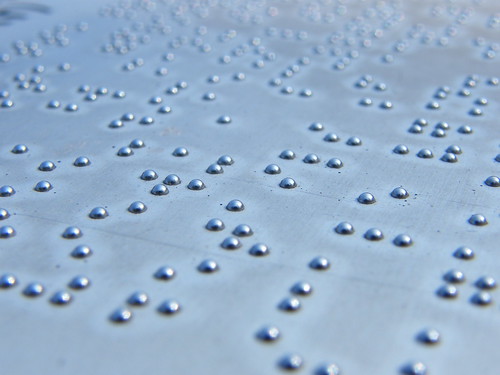
USA Today reports that less than 10% of individuals who are blind are able to read Braille (while Disability Scoop takes a more inflamatory approach with "Vast Majority of Blind are Illiterate".
"Fewer than 10% of the 1.3 million legally blind people in the United States read Braille, and just 10% of blind children are learning it, according to a report to be released Thursday by the National Federation of the Blind...Instead, teachers ask students to rely on audio texts, voice-recognition software or other technology. And teachers who know Braille often must shuttle between schools, resulting in haphazard instruction, the report says. Using technology as a substitute for Braille leaves blind people illiterate, the federation said, citing studies that show blind people who know Braille are more likely to earn advanced degrees, find good jobs and live independently...One study found that 44% of participants who grew up reading Braille were unemployed, compared with 77% for those who relied on print. Overall, blind adults face 70% unemployment."- USA Today
Strong words and strong stats, but I'm not convinced. I have concerns calling individuals who can't read Braille "illiterate". Though I suppose technically accurate to some degree, it doesn't tell the story of individuals who may be "illiterate" but who have completed college degrees through the use of assistive technologies such as text to speech (and possibly speech to text). These individuals could receive their texts and materials in electronic format (or have it converted), and have it read by computer to them.
I'd be curious how the stats look if you controlled for age, income, co-curring disorders and a few other factors. I would guess that younger blind individuals who are not otherwise impaired are more likely to be employed and better educated. I would suspect that Braille is not the litmus test for these individuals and that they are greater users of assistive technologies such as text to speech programs like JAWS from Freedom Scientific. The beauty of modern technology is that much of it is electronic via the internet, and much of that is accessible.
Photo courtesy of Lisalou66
Thanks for supporting Maine VRC.

No comments:
Post a Comment